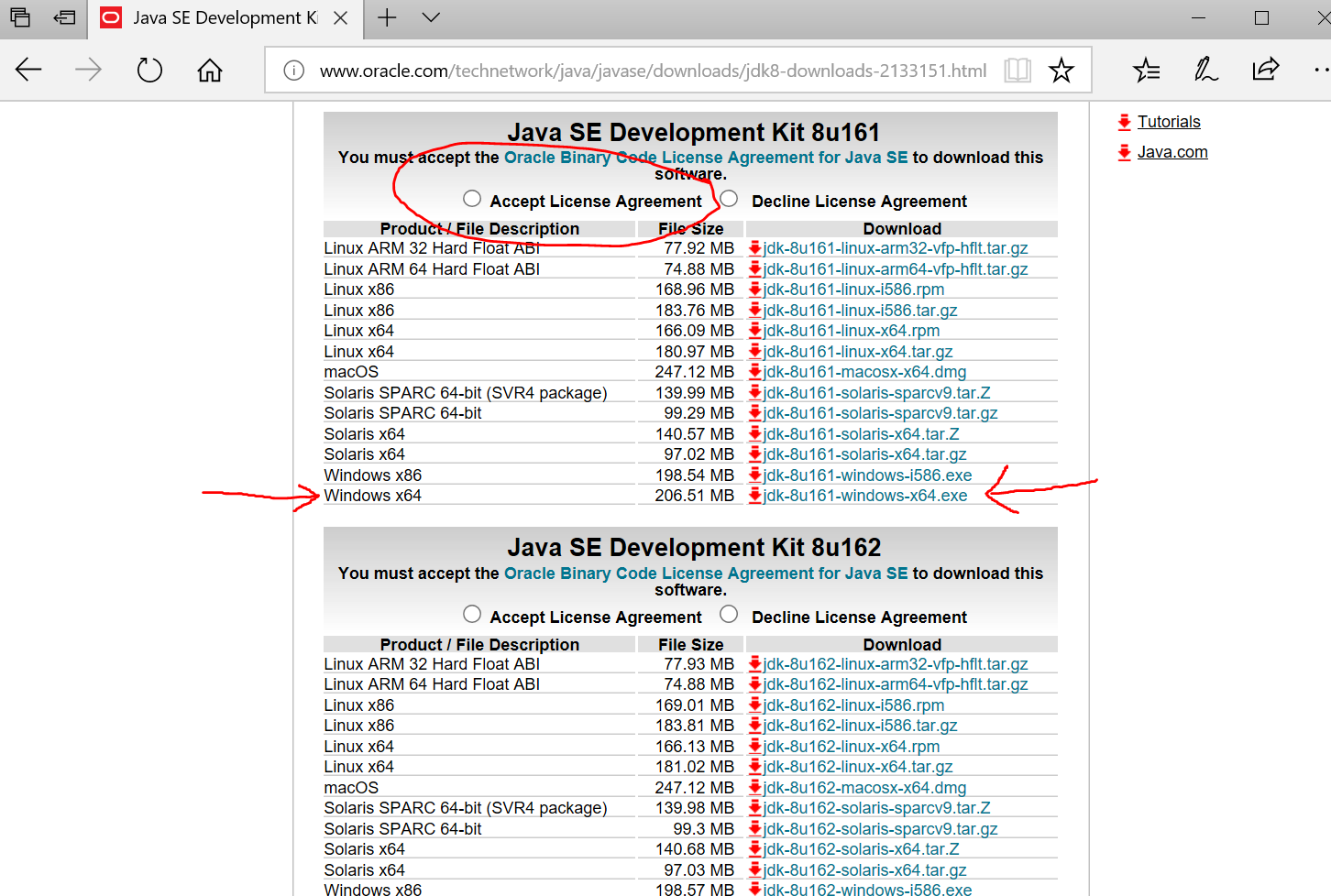

- #Java jdk 1.7 free download for mac mac os x#
- #Java jdk 1.7 free download for mac install#
- #Java jdk 1.7 free download for mac code#
- #Java jdk 1.7 free download for mac password#
Installation is simple per these instructions: No more need for the tricks discussed on this page.
#Java jdk 1.7 free download for mac mac os x#
Oracle announced the official release of the JDK for Java SE 7 Update 4 on Mac OS X (Lion), as of. Runs on Macs with 64-bit hardware on Lion (10.7.3+), Mountain Lion (10.8.3+), and Mavericks (10.9.x). Java 7įor every release of Java 7 since Update 4, a Mac version has been ready alongside the other platforms.
#Java jdk 1.7 free download for mac install#
You can download the Java Development Kit (JDK) for Java 8 for the supported versions of Mac OS X:Įach version of JVM you install can be found here: /Library/Java/JavaVirtualMachinesįor more instructions and FAQ, see this Oracle Guide.
#Java jdk 1.7 free download for mac password#
You can delete any installation simply by deleting the nested folder for that version and providing your system password when prompted. You will find the Java installations in this folder at the root level of your drive (not in your home folder):Įach version from each vendor is found there, in a labeled nested folder. Verify your installation by using the Terminal.app (or equivalent) to type and run: java -version Installation/Removalīoth Oracle and Azul provide utterly easy-to-use installers to install the JVM/JDK on your Mac. Personally, I am currently using the Zulu release of Java 10.0.1 from Azul on macOS High Sierra successfully with IntelliJ 2018.2 to produce Java-backed web apps with Vaadin. I wonder if they might support a macOS release as well, though it is too soon to tell.
#Java jdk 1.7 free download for mac code#
Meanwhile, IBM donated code for a JVM to the Eclipse Foundation, now housed in the OpenJ9 project.

Oracle releases of the JDK and JRE, with optional paid support.At this point, at least three sources are based on OpenJDK for macOS: See this 2017-09 announcement and this posting by Mark Reinhold.Īs a result of all this, macOS users of Java have a choice of vendors for a Java implementation. Notably, the periods for free-of-cost public updates is now shortened. This is part of the shift to a new rapid “release train” plan for predictably scheduled versioning of Java and OpenJDK. The company even donated their previously commercial tools, Flight Recorder & Mission Control, to the OpenJDK project. Oracle has recently announced their intention to bring their Oracle-branded JVM release to feature parity with the OpenJDK project, with virtually the same code base. Apple ceased distribution of their own branded JVM/JDK, relying on Oracle’s branded releases to include a version for macOS. Years ago, Apple joined the OpenJDK project, transferring their formerly proprietary macOS-specific JVM code as free-of-cost open-source. All the ".*" are all red and I cannot run it as a Java app. Under the src folder, I copy pasted the WatchDir.java file.Īnd I still see tons of squiggly red lines. So, I boot up Eclipse (actually I use STS) and create a new Java project and choose JaveSE-1.7 in the "use an execution environment JRE:". java file to test it out first and make sure that it is running. From the tutorial in the first link, the author gave a. So, now I feel that I can start trying out WatchService API. Then I open "Java Preference" and see that OpenJDK7 is available. Then, I read around some more and found that some nice group of people created JDK 7 as a binary so someone like me can install it easily. has the JDK which I downloaded and extracted. I would like to use the WatchService API as mentioned in this link:Īfter reading around, I found out that WatchService is part of the NIO class which is scheduled for JDK 7.


 0 kommentar(er)
0 kommentar(er)
